
Dog hiccups are cute to watch—that little high-pitched squeak sounds just like our hiccups and reminds us of how similar we can be to our pets. However, there may be times when those hiccups worry you, such as in cases where they don’t go away quickly or when your dog seems distressed. Learn what causes hiccups in dogs, how to get rid of dog hiccups, and when to contact your veterinarian.
Hiccups are caused by a contraction of the muscles used in breathing, specifically the diaphragm and intercostal muscles, which sit between the ribs. When these muscles contract suddenly, air is pulled into the lungs and the vocal cords close, causing the sound we call a hiccup.
Dog hiccups are spontaneous and usually resolve on their own within a few minutes. They may occur for many reasons, but often they're related to factors that expand the stomach or abdomen.
Less commonly, hiccups may occur due to conditions that irritate or damage the regions of the brain or nerves responsible for contractions of the diaphragm and other related muscles. Examples of this include injuries or tumors in the brain or brainstem, injuries to the spinal cord (especially in the region of the neck), and damage to the nerves that stimulate the diaphragm and intercostal muscles.
One possible but unusual cause is the virus distemper encephalitis, which can cause myoclonus (involuntary spontaneous muscle contractions or spasms). Distemper is one of the viruses dogs are commonly vaccinated against in their core vaccine series.
Dog hiccups often resolve quickly and are not typically a cause for concern. Most of us have probably heard some funny remedies for hiccups over the years, but these are largely unproven and unlikely to be effective.
If your dog is breathing heavily or panting hard, try to calm their breathing by helping them relax. You can also offer small amounts of water and encourage your dog to drink slowly. Monitor your dog for any signs of illness.
Do not attempt to stop hiccups by scaring your dog, blocking their breathing, or pulling on their tongue. Methods like this can hurt your dog and may even lead a dog to bite.
Contact your vet about your dog's hiccups if the following situations occur:
Treatment will vary depending on your vet’s findings and diagnosis. Since hiccups could be a symptom of another underlying problem, the treatment will be aimed at resolving the primary problem. Additional diagnostic tests such as chest X-rays, abdominal ultrasound, and bloodwork may be part of the work-up your vet recommends.
If the vet thinks the hiccups are caused by irritation of the esophagus or stomach, medication can often be prescribed to help resolve this. If medication is unsuccessful, endoscopy may be recommended to take a closer look at the walls of the esophagus and stomach. Evaluation by a veterinary neurologist may be considered if your dog has neurological symptoms. Other conditions may also be treated with medications. In rare cases, surgery may be necessary.
Since hiccups can be a normal occurrence in many cases, there is usually nothing that needs to be done to prevent them. However, pet parents can take some steps to prevent dog hiccups:
For dogs that seem to get hiccups often, especially after eating or drinking, it may be a good idea to use some techniques to slow them down. There are special bowls and treat dispensers that make your dog work a little harder for their food. This keeps them from scarfing down all their food too quickly. Water can be offered in smaller quantities or with an automatic dispenser to prevent your dog from drinking too much too quickly.
Some of the more unusual causes of hiccups are difficult to prevent since they are caused by spontaneous disease. Keep your dog healthy by providing proper nutrition, exercise, annual veterinary exams, and routine vaccinations to prevent serious illnesses such as distemper encephalitis.
In breeds that may be at risk for neck and back injuries, such as the beagle, dachshund, shih tzu, Pekingese, Yorkie, and Chihuahua, make sure to take precautions to prevent injury. This includes using a harness instead of a neck lead to prevent pulling on their necks, and to train them not to jump on and off the furniture to prevent those high-impact landings.
Luckily for most dogs, hiccups are just a fleeting nuisance and tend to go away quickly. You may even want to record a quick video of those cute little squeaks before they’re gone for good.
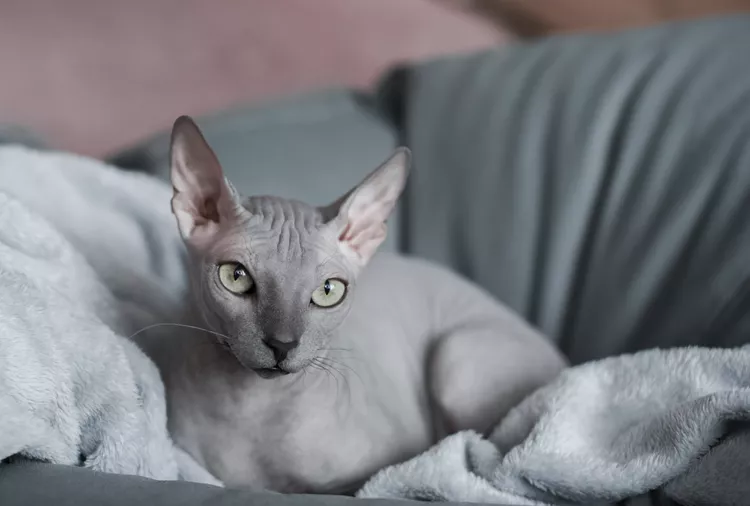
212 Hairless Cat Names For Your Beautifully Bald Feline
Discover the perfect name for your hairless cat with our list of over 200 creative and unique names. From quirky to classic, find a fitting choice for your beautifully bald feline companion.
8 Things Your Cat Loves
Just like humans, cats can have a long list of things they like. Find out what cats love so you can keep your cat happy and healthy.
How to Tell If a Kitten is a Boy or a Girl
If you're wondering whether your new kitten is a boy or a girl, here are three ways to help determine the sex of your cat.
8 Tips to Help Cats Enjoy Car Travel
Cats are creatures of habit, and they hate to travel. Learn tips to prepare them for travel in the car, whether going to the vet or on vacation.
Common Causes of Mucus in Dog Poop
Seeing mucus in your dog's poop can be concerning to a dog owner. Here are common causes and treatment of mucus in a dog's stool.
Is Shrimp Bad For Dogs?
Shrimp can be a healthy, nutritional food for people but can dogs eat them, too? What are the main concerns with feeding shrimp to your dog?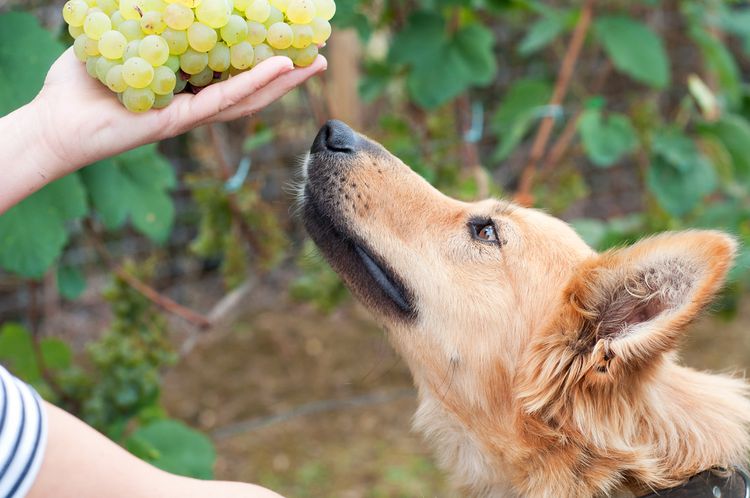
Can Dogs Eat Grapes?
Are grapes safe for dogs? Grapes and raisins can cause serious toxicity in dogs. Find out what to do if your dog eats grapes.
Maine Coon Cat: Breed Profile, Characteristics & Care
The Maine Coon cat is of the largest cat breeds in the world. These amiable, gentle cats make great companions. Learn about the Maine Coon cat breed's appearance, temperament, health, and care needs.
Selkirk Rex: Cat Breed Profile, Characteristics & Care
The Selkirk Rex is a charming cat with a tousled coat and a loving, laid-back personality. Learn about the Selkirk Rex breed.
How to Stop Your Cat From Chewing Electrical Cords
Cats are known to pounce and attack inanimate objects, like electrical cords. Learn how to prevent your cat from ambushing objects that may harm it.
What Do Cats Think About?
Have you ever wondered what cats think about? A number of studies have explored cat behavior and feline cognition, but there's still more to learn.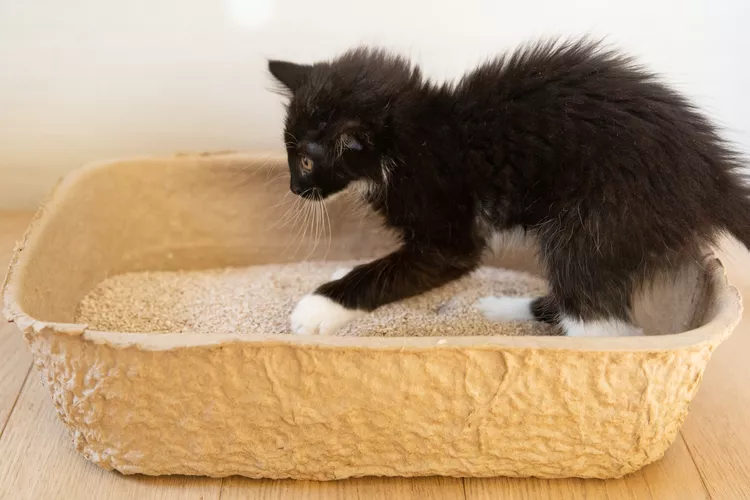
Training Your Kitten to Use the Litter Box
Bringing home a new kitten means they need to learn how to properly use a litter box. Discover how to successfully litter box train your kitten.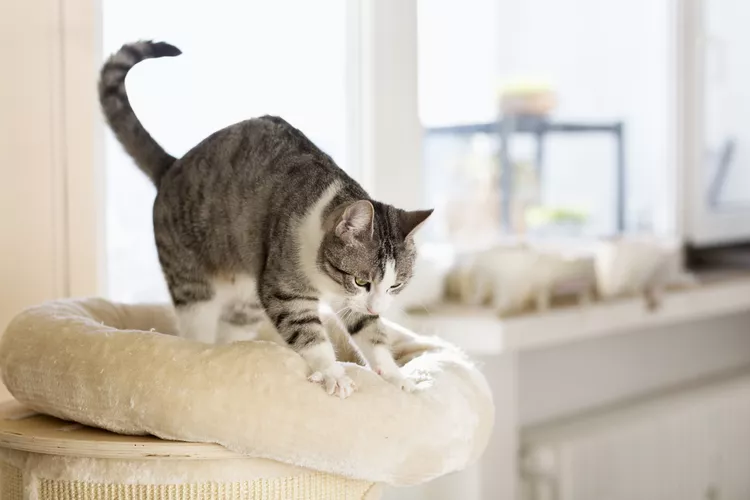
Why Do Cats Knead?
Kneading is a common behavior in cats of all ages. Learn why cats "make biscuits" and what it means for you, your cat, and all your blankets.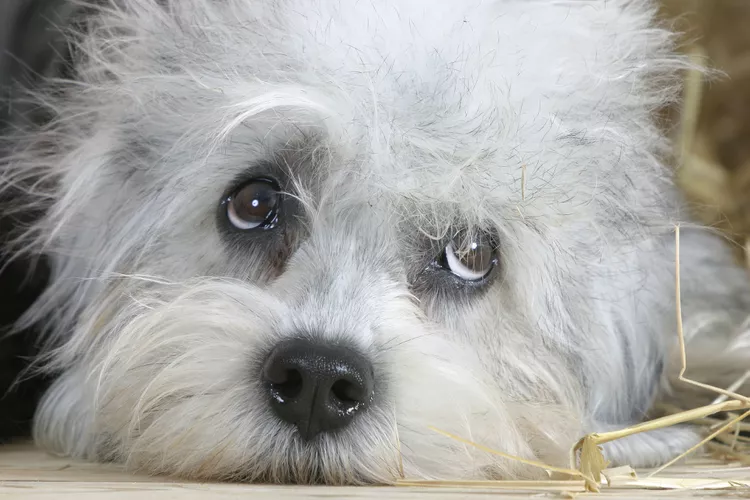
Dandie Dinmont Terrier: Dog Breed Characteristics & Care
Learn about the Dandie Dinmont Terrier, a silky dog breed with a signature puff of hair atop its head and a friendly, companionable personality.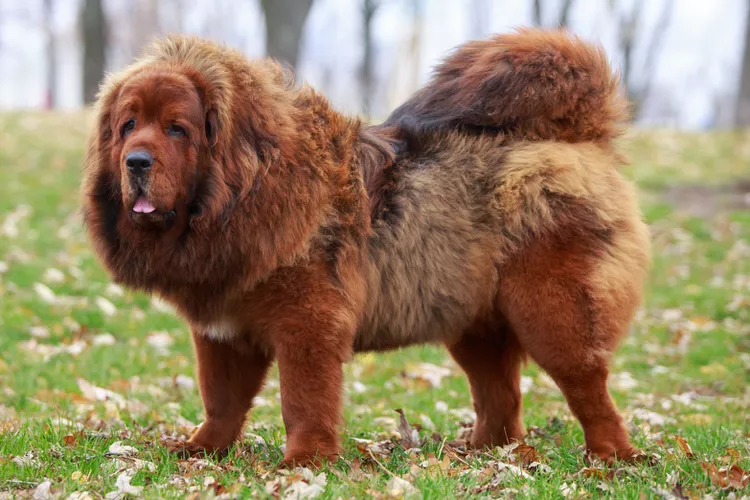
Tibetan Mastiff: Dog Breed Characteristics & Care
Learn about the Tibetan mastiff, an ancient guardian dog breed. This breed is known for their massive stature, flowing mane, and protective personality.
4 Reasons Why Your Dog Licks Their Butt
Butt-licking in dogs can be a part of normal grooming, but excessive butt-licking is not normal. Read about the most common reasons for this behavior.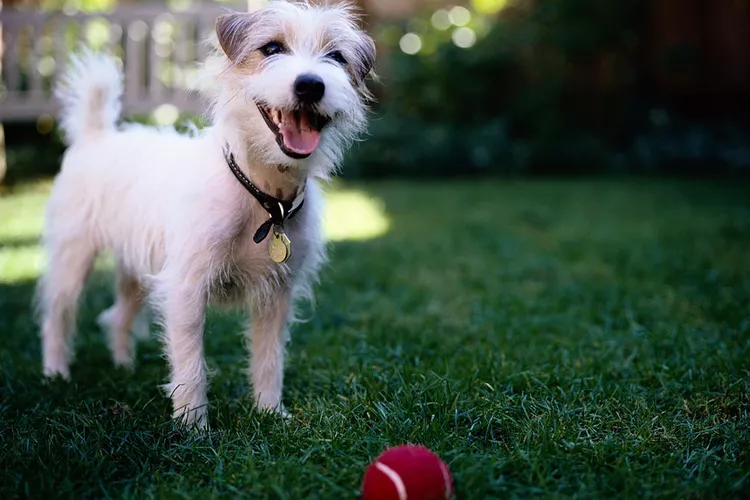
How to Teach Your Dog the "Leave It" Command
Training your dog the "leave it" command is a great way to instill self-control. Learn how to teach your dog to not pick things up from the ground.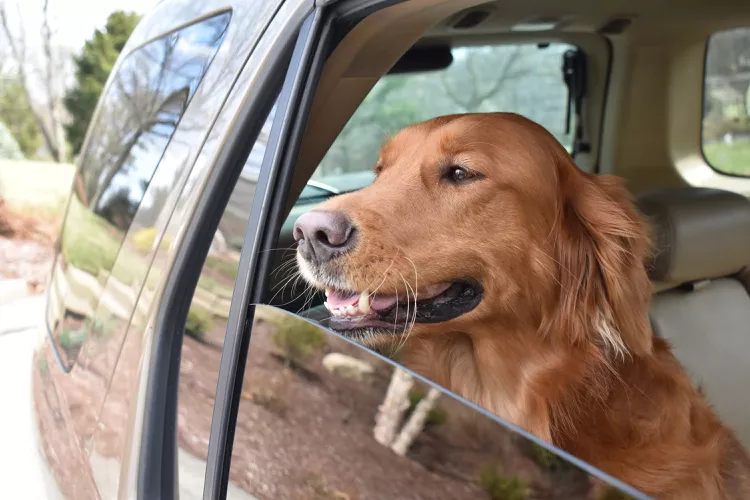
How to Solve Your Dog's Fear of Car Rides
Is your dog scared of car rides? This fear of riding in cars is common. Learn why your dog is scared of car rides and how to help conquer this fear.
Can Dogs Get Depression? How to Help Your Sad Dog
Can dogs get depression? Learn about the signs of depression in dogs and find out how to help your sad dog.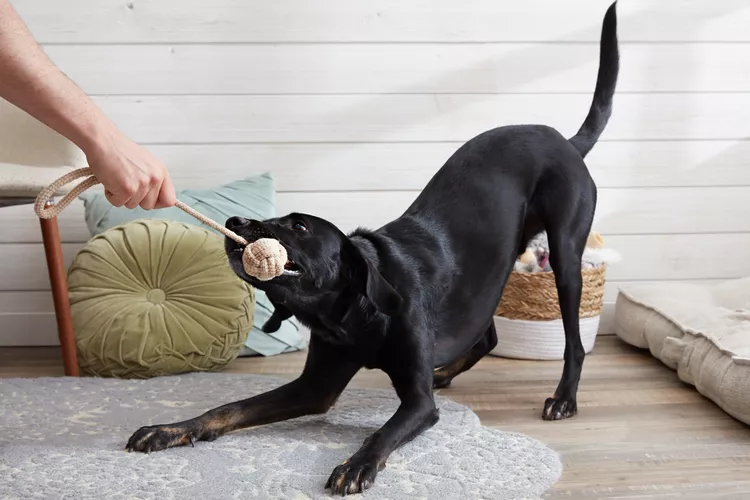
How to Play Tug of War With Your Dog
Many dogs love to play tug of war, and it's a healthy game that provides great exercise. Learn the best way to safely play tug of war with your dog.